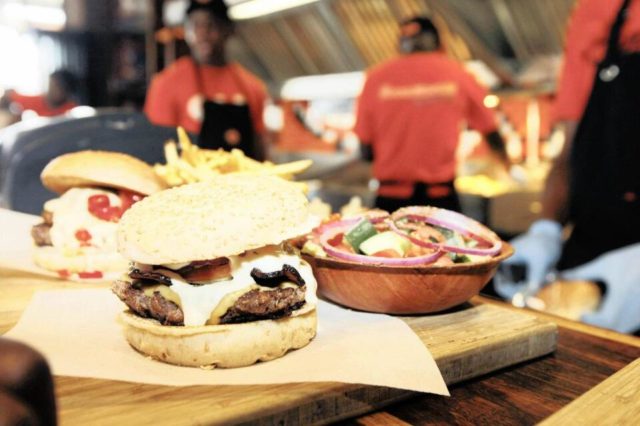SA Chamber of Commerce and Industry believes that the fast food outlets industry is a good, responsible choice to slowly bring back business in the country, under strict conditions
THE SOUTH African Chamber of Commerce and Industry (SACCI) has proposed a staggered return to business, starting with industries that can demonstrate high levels of physical distancing and health control, such as the fast food outlets (FFOs) industry.
SACCI commended President Cyril Ramaphosa on his leadership and management of the crisis in an attempt to flatten the curve of the infection rate of the coronavirus (Covid-19) pandemic, SACCI said in a statement.
“We acknowledge the difficult but necessary decision to further place South Africa in lockdown for the next two weeks, as there is still no certainty on the real effect of the current 21-day lockdown measures,” it said.
SACCI also supported Ramaphosa’s statement that “we will use the coming days to evaluate how we will embark on risk-adjusted measures that can enable a phased recovery of the economy, allowing the return to operation of certain sectors under strictly controlled conditions”.
“In this regard, the South African Chamber of Commerce and Industry, as a pre-eminent and most representative business organisation in South Africa, wish to suggest a staggered return to business, starting with industries who can demonstrate high levels of social distancing and health control, like the fast food outlets (FFOs) industry,” SACCI said.
This industry already operated with high health and safety standards and could be done under certain Covid-19 health risk mitigation conditions:
– All staff can be appropriately and consistently tested for health and Covid-19 infection;
– All staff to be provided with the relevant personal protective equipment where applicable. For example masks;
– The outlets to maintain the highest of standards of hygiene;
– The industry to make suitable arrangements for the transportation of their staff to and from work, and to ensure that the chosen mode of transport meets the highest of health standards; and
– To start, prepared food orders can be distributed through drive-through and delivery channels, then followed by take-away or call and collect under strict physical distancing. No sit downs to be permitted.
SACCI said South Africa had entered a technical recession before the start of the pandemic. In the period since then the country had also been downgraded to junk status by the ratings agencies.
“Even without this pandemic, our economy would have faced significant problems in the areas of macro economy performance and prospects, with negative GDP growth, a worsening exchange rate, adverse rising inflation and interest rates, plus a potential exploding unemployment crisis that can trigger social and political instability.
“The lockdown is also going to have a negative effect on our public finances and external finances that were constrained in the first place, given both our high debt to GDP ratio, and the downgrade that will put further strain on our public purses with liquidity and debt repayment obligations, on top of the difficulties in raising further external financing,:” SACCI said.
SACCI believed that FFOs were a good, responsible choice to slowly bring back business with an important food offering that serviced most South Africans. Additionally, the majority of FFOs fell in the category of SMEs. Allowing them to go back to work under these strict conditions would release the pressure on the SME relief support measures and UIF funds.
“Given the constraint in public finances, the relief measures will not be adequate to stem the downward tide, as the cash is likely to burn out in a matter of weeks. This cannot be a sustainable strategy. Enabling the return and on-boarding of the FFOs will release pressure on the announced, but limited support interventions. The FFOs employ more than 150 000 people, plus support a significant portion of the SA economy in their value chains. Some of these businesses are likely to close down and there will be major job losses as a result,” SACCI said.
The key words were “phased and controlled” to ensure that the return to work was not going to be counter-productive to the objectives of controlling the pandemic. SACCI believed the mitigation measures that had been proposed, and which the fast food industry was prepared to work with, were more than adequate.
“This FFO sector will give us the template, and experience on how to further look at other sectors.
“To protect the SA economy from a total collapse, we have to look beyond the lockdown as the only option, to a strategy on how to ‘live’ safely with the virus over an extended period that we (are) yet unable to determine. As the American Dr Fauci has maintained: ‘you don’t set the timeline; the virus sets the timeline’,” SACCI concluded.
– African News Agency (ANA)








